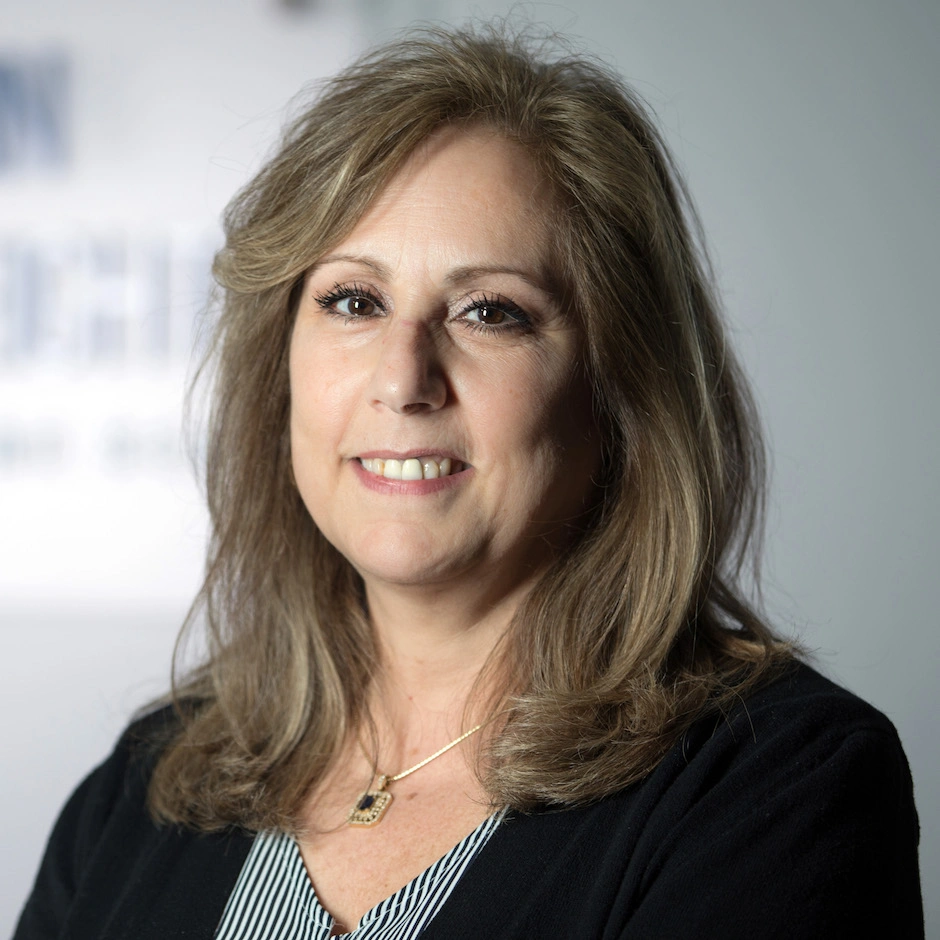Gal Dayan Joins Horizon Group as Chief Operating Officer
/in NewsHorizon Group, a leading global provider of specialized international freight forwarding focused on time-critical marine spare parts logistics, has announced that Gal Dayan has been appointed as Horizon’s new COO, effective April 15, 2025.
Horizon Air Freight Sponsors U.S. Coast Guard Foundation Tribute Dinner
/in NewsAnnual Event Honors Dedication and Bravery of Coast Guard Members
Horizon Air Freight, an acclaimed global marine logistics company providing solutions by air, land, and sea for more than 50 years, recently assisted with a noteworthy donation towards sponsoring a U.S. Coast Guard Foundation Tribute dinner.
The event, held April 11 at the Margaritaville Beach Resort in Hollywood, Florida, brought together nearly 600 community members, leaders of maritime and energy industries, and other local supports to honor the dedication and bravery of members of the Coast Guard’s Seventh District.
“We’re thrilled to have sponsored such an important event for this prestigious organization” said Horizon Air Freight Director of Cruise Logistics, Alex Durante. “We will always look for ways to support the brave men and women of the Coast Guard and their families in any way we can.”
In addition to featuring many notable honorees, the evening shined a special spotlight on Coast Guard helicopter crews who conducted two daring rescues during Hurricane Helene as part of a weeklong response that save or assisted 21 people and five pets in Florida, South Carolina, and North Carolina. These rescues, carried out during harrowing weather conditions, underscored the Coast Guards unwavering commitment to protecting lives.
The U.S. Coast Guard Foundation is committed to ensuring all Coast Guard members and families have the resources they need to build resilience throughout their lives. Founded in 1969, the Foundation has been a vital partner to the U.S. Coast Guard – tackling the toughest challenging confronting our heroes.
Horizon Group keeps fleets shipshape and on schedule with global marine logistics by air, land, and sea. Critical marine spares, supplies, and equipment from any vendor worldwide: consolidated, expedited, delivered door to deck. With more than 50 years of experience, we keep more than 6,000 ships safe, able, and sailing. For more information, visit haf.com.
Horizon Air Freight’s New York Office Hosts International Food Day Lunch
/in NewsHorizon Continues to Celebrate Strength in Diversity
Horizon Air Freight, an acclaimed global marine logistics company providing solutions by air, land, and sea for more than 50 years, recently hosted an International Food Day celebration at its New York office.
To mark the occasion, which brought together over 35 members of Horizon team, staff prepared and served food representative of their various backgrounds and cultures. The beautiful diversity of the office was on full display as the group enjoyed food representing 17 different nationalities.
“We’re thrilled to have hosted such a special event,” said Account Manager Mai Elvezio, who coordinated the event with help from her team. “We couldn’t have expected a better turnout, and look forward to the next opportunity to come together for a day of comradery in celebration of our wonderfully diverse cultures.”
The following dishes were prepared and enjoyed by the staff:
- Agustina –– Pastry (Argentina)
- Ken – Dumplings (China)
- Steven – Pork (China)
- Vita – Cookies (China)
- Stephanie – Cheese empanada (Colombia & Puerto Rico)
- Patricio – “Ceviche” (Ecuador)
- Alex Durante – Tzatziki dip & Pita (Greece)
- Kristy – Spanakopita (Greece)
- Steve – Moussaka (Greece)
- Alex Leondis –Meatballs (Greece)
- Ahilya – Egg Balls with salsa (Guyana)
- Basheer – Barah with salsa (Guyana)
- Debra – Jerked Chicken Breast, Seasoned Rice & Plantains (Guyana)
- Nahlene – Pastries, Mettai (Guyana)
- Roza – Vermicelli (Guyana)
- DeShaun – Pine tart & Cheese Roll (Guyana)
- Andrew – Soda, Fruits (Italy)
- Bridget – Pasta w/vodka sauce (Italy)
- John – Cannoli (Italy)
- Alice – Sausage & Peppers (Italy)
- Rose – Broccoli Rabe with Sausage (Italy)
- Joon – Marinated Beef (Korea)
- Christian – Pastries (Puerto Rico & Haiti)
- Helen & George S. – Blintzes (Russia)
- Jimmy – Mac & Cheese (Scotland)
- George Savich – Sausage and Pita (Serbia)
- Katrina – Doubles, Aloo Pie (Trinidad)
- Pixie – Doubles, Aloo Pie (Trinidad)
- Anderson – Doubles, Aloo Pie (Trinidad & Venezuela)
- Alex Levine – Bread (United States)
- Ashley – Barbeque wings (United States)
- Michelle – Cake (United States)
- Micquan – Fried Chicken (United States)
- Will – Ribs (United States)
- Mai – Spring rolls with dipping sauce (Vietnam)
Horizon Group keeps fleets shipshape and on schedule with global marine logistics by air, land, and sea. Critical marine spares, supplies, and equipment from any vendor worldwide: consolidated, expedited, delivered door to deck. With more than 50 years of experience, we keep more than 6,000 ships safe, able, and sailing. For more information, visit haf.com.
Ship Shape
/in NewsAs Seen In Forbes & Fortune
The Future of Business in New York City
The following story was released in Forbes & Fortune in June 2024.
Global logistics company Horizon Air Freight specializes in providing supply chain solutions for spare parts and supplies to maritime vessels while working to make the world a better place
Since 1970, Horizon Air Freight has been delivering spare parts to ship owners and managers worldwide.
From chemical and oil tankers to container and dry bulk vessels, “if your ship is traveling around the world, you have a constant need for replacement and spare parts,” says Steve Leondis, CEO. Horizon’s clients know they will receive their orders in an efficient and timely manner, no matter where they are in the world, avoiding loss of time and money.
Leondis’ father, a Greek immigrant, started Horizon with a handful of contacts in the Greek maritime industry. “He was a self-made man and entrepreneur,” Leondis says fondly.
After graduating from Yale University in 1983, Leondis joined his siblings at Horizon. He worked his way up the ranks, from warehouse to operations, accounting, and sales, eventually to CEO. During his tenure, Horizon has become a global leader in marine logistics, as one of the top five companies in their sector.
Expansion has been the name of the game for Leondis, who has overseen Horizon’s evolution into trucking, air transport, warehousing, and total logistics services—including delivery of food and beverages—for the luxury cruise market.
Exponential Growth
Headquartered in New York, Horizon handles logistics for over 6,000 vessels and makes roughly 60,000 deliveries globally each year. A truly international company, Horizon operates in offices across the world including Singapore, Istanbul, Copenhagen, Amsterdam, Miami, Athens, Ushuaia, and Houston. After co-investing with ICV Partners—a specialized private equity firm—in 2019, Horizon’s revenue has grown roughly 600%, and their staff has grown substantially from 28 to 400.
“Our clients are a blue chip roster of ship owners and publicly traded companies,” says Leondis. “We are constantly reinvesting in our company to improve our infrastructure, hire more staff, and upgrade our technology to better serve our clients.”
What differentiates Horizon from competitors is staffers’ “can do” attitude and dedication to white glove customer service. “We are nimble and knowledgeable in our space and move fast while being competitively priced,” says Leondis. “Our staff is what makes Horizon unique among its competitors.”
Future Forward
Blessed with a 38-year marriage, three children, and recognition as an Ivy League basketball legend in 2022, Leondis isn’t slowing down in his aspirations. He and the senior leadership team have forecasted a growth of at least 250% by 2029 as they propel Horizon to become the No. 1 marine logistics provider worldwide. In addition, he dedicates much of his free time to supporting Project Nyame Nsa, a nonprofit he and his daughter co-founded that provides holistic care for orphans in Africa.
Those goals, and more, inspire Leondis to focus not only on Horizon’s legacy, but also to continue growing the business in a powerful way. “It’s a way of ensuring that Horizon employees like my son Alex, who joined the family business in 2020, have a solid and meaningful future ahead,” Leondis concludes.
Horizon Air Freight Honors Staff with Labor Day Employee Recognition BBQ
/in NewsTuesday, September 5, 2023
Horizon Air Freight, an acclaimed global marine logistics company providing solutions by air, land, and sea for more than 50 years, recently hosted a Labor Day Employee Recognition BBQ to honor the hard work of its esteemed staff.
The event, which took place over Labor Day Weekend at Horizon’s headquarters in Jamaica, NY, served to thank Horizon employees for their years of dedication to the company. A BBQ lunch was cooked and served on-site as dozens of staff members gathered to take in the food, fellowship, and festivities.
“Whether it’s a warehouse worker, truck driver, or senior sales person, everyone does their part and deserves to know just how much they’re appreciated,” said Steve Leondis, Horizon Air Freight CEO. “Our expert staff has always been the backbone of our success, and we would not be where we are without their tireless efforts.”
Keeping the world’s fleets equipped and supplied is a massive global undertaking, dependent on an international network of suppliers, warehouses, ports, and agents. Fleet technical directors, procurement managers, purchasing agents, captains, and engineers work heroically to keep their ships safe and productive. And for 50 years, they have relied on Horizon to get their spares, supplies, and equipment where they need them, when they need them, no matter what it takes.
Horizon Group keeps fleets shipshape and on schedule with global marine logistics by air, land, and sea. Critical marine spares, supplies, and equipment from any vendor worldwide: consolidated, expedited, delivered door to deck. With more than 50 years of experience, we keep more than 6,000 ships safe, able, and sailing. For more information, visit haf.com.
Why I Joined Horizon, and Why I Stay
/in Employee Spotlight, NewsWe’ve been experiencing record growth at Horizon this year, welcoming new faces and expanding our diverse pool of talented, hard-working people — all dedicated to keeping your fleets safe, shipshape, and running on time. But we’re also blessed with many veteran team members who have stayed with us over our decades of change.
In the interest of ensuring our values and mission remain on course for our employees and our clients in this time of expansion, we checked in with a few key players to understand what makes Horizon a place they keep coming back to, day after day and year after year. Here’s what they had to say.
 Jim Gassert
Jim Gassert
Our Executive Vice President, Jim Gassert, has been with Horizon for 42 years. In the early days of his career with us, he oversaw exportation in our Hellenic aerospace program, formed in partnership with the Greek Air Force and NATO. From there, he evolved into air and ocean exporting, and did fill-in work for our domestic department. Eventually, he moved into the role of Import Manager, where he worked for many years until just recently transitioning to his current role.
“I’ve grown and evolved quite a bit,” Jim confirms. “And one of the big attractions of this business is that it really allows you to do that. You can be in any one of the different universes in which we operate, which keeps things fun and interesting.”
This opportunity to evolve was a big part of what attracted Jim to Horizon in the first place. “When I started I was very young,” he elaborates, “looking for something that was different, challenging. Not just physical labor, but a job that included problem solving, and would encourage me to be a part of a team to help solve issues collaboratively. Even to this day there’s always a flux in a client’s needs, so it’s still a great place for anyone looking for challenge and change.”
That Horizon was small and family-owned at the time was also a draw. “I was looking for a secure job that would have longevity,” Jim asserts. “My dad had been with the Long Island Lighting company most of his life, and I wanted something similar. When Horizon started it was family-owned, and though we’ve moved past those days into being a global provider and leader in what we do, the leadership team still maintains that same touch with the workforce. Direct communication with leadership is not only available but encouraged. To be able to have a voice with leadership on any topic, even if you’re a new addition, is encouraged and a great asset.”
Jim also observes he isn’t the only one who has remained dedicated to Horizon. “We are in a unique niche, and that affords us long-standing relationships with clientele that have stayed with us through the years. Rarely does a client leave us. When they’re onboarded, we do everything we can to make them very comfortable and very satisfied, generating a loyalty that will carry through.”
To illustrate how dedicated we are to our clients, he shares a story: “A Greek ship owner wanted to build a duplicate of a chapel that was in his mother’s home town, so that she could replicate her experience as a young girl in Greece even though she had relocated in upstate New York. So he had the chapel built in Greece, and then wanted to ship it over. This all sounded well and good, until we discovered the completed chapel was extremely tall and heavy, and had to be trucked through small towns upstate. I was responsible for ushering the project from beginning to end, and personally accompanied it as we traveled. Sometimes the electrical wires would have to be propped up with wooden poles to allow the truck to pass through on our pilgrimage. Obviously it was a difficult logistical move with all of the customs, permits, and transports to arrange, but when it was in place — not a single pane of stained glass even cracked —and looking so beautiful, everyone was so gracious and thankful for all the efforts.”
Now Jim is pleased to pass along his knowledge to others. “This is a fun time for me,” he reflects, “because I have a chance to mentor to some degree and to share some of these experiences, hopefully in a way that will be fruitful for the people who listen, and will help them as they start to do their own 20 – 30 years with us. That’s fun, because it’s no longer about me; it’s about us, and particular people who have the skill set and the ability to grow and rise. Our business is not written down in a book. It’s a spider web of information that can be used at any one point, and now I’m helping them navigate that web to make the right choice. It’s satisfying to get the chance to let others stand in the sunshine, hopefully in a way that will help make it just as interesting, fun, and challenging for them as it was for me. It’s very rewarding to share, mentor and give.”
Dicle Deveci
Though she’s about to celebrate her one-year anniversary with Horizon, Sales Operations Manager Dicle Deveci was no newcomer to shipping logistics when she started with us. She came with ten years of experience at both small and large firms, and is now enthusiastically sharing that experience and knowledge with us. “I want to take my learnings from corporate life, and tailor it to Horizon to help make them successful in expanding,” she says. “Even though we are a niche company, we would like our customers to feel they are having a corporate-level experience.”
Having the chance to share her expertise is one of the things Dicle appreciates most about Horizon. “The more an organization becomes corporatized,” she explains, “inevitably, you are distanced from the operations side, because your tasks become more specialized. Here, working for a niche company, everyone is open to the exchange of information and solutions. This creates great momentum that’s professionally rewarding because we’ve already started to see the fruits of our work within just a year.”
Because she was moving from a big, well-known company to a smaller firm, Dicle admits she was unsure about the transition at first. She wondered if she would fit in, and how the organization would run. “But from day one,” she says happily, “I felt like I had been working there for more than a year. Everyone was warm, helpful, welcoming. All the question marks went away right away.”
“This warmth and welcome is extended to our clients, too,” Dicle continues. “Horizon forms relationships with our customers as a partnership. It’s not just transactional, but a long-term partnership. We are trying to make their lives easier. We build trust; we want to help them grow their business, so it’s a two-way relationship and not just a balance sheet. We want to grow and learn with them by passing on our market intelligence. We have had customers for over 20 years, and that long-term partnership really makes us stand out.”
Dicle also echoes Jim when she points out another outstanding aspect of working at Horizon: “Our industry is very dynamic. It’s not repetitive. Every day there is a new challenge. If you want to build your skill set or challenge yourself each day, the industry and the company is the way to go. You gain insights into yourself, develop problem-solving skills, and adopt fresh perspectives for every challenge. Creative thinking plays a crucial role in the industry. And you have teammates all over the world.”
Sviatlana Bareka
Import Manager Sviatlana Bareka is another relatively new addition to the Horizon team — having celebrated her first anniversary with us in June — but like Dicle and Jim, she too is thrilled by the growth potential and supportive environment she’s found.
“Horizon has a positive company culture,” she says, “and the company provides opportunities to learn from experienced professionals and to contribute to delivering exceptional experiences to customers while ensuring a ‘family like’ environment in the office. With the support of its extremely talented management team, Horizon keeps employees engaged, motivated, and goal-driven. This makes Horizon a great place to grow and achieve long term goals and objectives.”
Though this is her first managerial role, Sviatlana had a great deal of logistics experience when she started with us, including working with clients, shipping agencies, and brokers. When she received her Customs Brokers license in 2022, and this new opportunity arose, “I made the decision and I’ve never regretted it,” she says happily. “They invest a lot in the personnel and the technology. They are really growing and it’s been great to be a part of.”
Like her counterparts, Sviatlana is also pleased to be a part of something unique. “We’re not selling products,” she explains, “we’re selling services. The whole team is working hard to make arrangements to take care of freight, customs clearance, delivery — all delivered to the vessels on time. We are doing something unique in the field, because we are not delivering to regular customers but to the vessels themselves. It involves a lot of arrangements, which forces Horizon to work hard as a team. Horizon is a company with a great reputation, and its positive brand image built over 53 years is what attracts and retains customers.”
And she’s already been put through her paces. “I can remember handling the heaviest piece of equipment in Horizon’s history (around 45MT), shipped by ocean as RORO cargo. We faced multiple challenges, as a lot of coordination was involved. We had to request a special appointment at the port, which required crane arrangements, and extra payment for loading/unloading, because the crane was available only on specific days. Because the cargo was oversized and overweight, a special truck needed to be hired for transportation, with special permits. Plus there was a lot of coordination with the consignee as they needed to make the same arrangements at the facility: getting a crane, as well as an unloading team.”
But to Sviatlana, it was all worth it. “The project was completed successfully, and we got lots of positive feedback from the satisfied customer.”
Situations like this one — paired with our future plans — keep Sviatlana growing, too. “There are many stories in logistics,” she says. “We are facing unique and unpredictable situations on a daily basis. This is my first managerial role, and I am very grateful to the company for their trust, and for providing me with an opportunity to transform my team. Horizon invests in technologies and personnel and is continuously growing. We are currently in the process of implementing a brand new working platform. The company has grown a ton since my arrival last year.”
We are grateful for Sviatlana, Dicle, and Jim for their hard work and dedication — along with that of every team member. We look forward to supporting their ascendence, and also to growing more with you. To learn more about how we can help you get your fleets whatever they need, wherever they need it, delivered door-to-deck, on time and on budget, start a conversation with us today.
Horizon Group Welcomes David Goldin as Global Controller
/in NewsThe acclaimed global marine logistics company expands leadership team amid recent growth
Horizon Group, an acclaimed global marine logistics company providing solutions by air, land, and sea for more than 50 years, recently announced David Goldin will be joining its leadership team as Global Controller.
Goldin, a veteran corporate accountant, will oversee various aspects of Horizon Group from accounts receivable and collections to staff development and tax compliance. Among his initial projects, Goldin will be designing and developing a cash flow reporting system. Goldin says he looks forward to utilizing his design skills and versatility while sharing his strong understanding of U.S. Generally Accepted Accounting Principles and how to best apply them.
“At Horizon Group, we pride ourselves in putting together a strong team of experts,” says Steve Leondis, CEO of Horizon Group, “not only for the betterment of our business, but to provide the best customer experience possible. With David on board, our team will be even stronger.”
Goldin joins Horizon Group in the midst of the company’s recent growth. In March, powerhouse companies Horizon Air Freight and Swift Marine entered a strategic business partnership as Horizon Group, offering a unique combination of marine logistics and port agency services in North America, South America, Asia, and Europe.
“I’m thrilled to see Horizon Group grow and thrive,” Goldin says. “With a company that’s growing like Horizon is, the sky’s the limit. We have access to resources that will continue to take the business to the next level, and I’m excited to do my part.”
Interviews are available upon request.
Horizon Group keeps fleets shipshape and on schedule with global marine logistics by air, land, and sea. Critical marine spares, supplies, and equipment from any vendor worldwide: consolidated, expedited, delivered door to deck. Whatever you need, wherever you need it, we’ll get it there on time and on budget. With more than 50 years of experience, we keep more than 6,000 ships safe, able, and sailing. For more information, visit haf.com.
How to Feed a Cruise Ship
/in NewsDuring the spring and summer months, many families, individuals, and couples look to cruises for their vacations. Traveling in this way can provide exotic locations, stunning views, easy navigation, and decadent service all in one place.
Though it may be easy to imagine what goes into the majestic construction of each vessel, the careful mapping of routes, and the luxury of on-board experiences — what does it take to feed everyone on board?
The Particulars of Equipping a Mini City
“A cruise ship is really a mini city on the sea,” says our Director of Cruise Operations, Alex Durante. “It needs everything imaginable onboard for its week-long voyage: all sorts of dry and perishable foods that originate globally, linens for cabins, spare parts for the engine room, chlorine for the pools, an array of cleaning chemicals, every type of beverage, waste management equipment, whatever’s needed to fulfill the entertainment on board. The list goes on and on, and all these items need to be strategically shipped to the vessel week after week as old passengers disembark and new passengers embark. But in the end, all of it has to get there on budget, precisely on time, and without any room for error or delay.”
“It’s not like a cruise vessel can receive local deliveries while at sea,” Durante adds. “The stock they currently have onboard is all that they have to work with. If any essential items are missing from the chef’s planned dinner service, substitutions result in both nuances and quality control issues.”
Supplying such a “city on the sea” requires the labor of hundreds — if not a few thousand — individuals depending on the size of the ship. There are many moving parts, and a lot of provisions needed. “For smaller luxury cruises,” Durante says, “when it comes to meats, poultry, etc., we’re shipping somewhere around 5,000 pounds for a single voyage. Then say 7,000 pounds of produce, 15,000 pounds of beer, alcohol, wine, soda; you can see over 2,000 pounds of soda alone. And for those with a sweet tooth, 300 pounds of ice cream.”
At Horizon Air Freight, we specialize in catering to smaller, boutique operators: ships that usually limit their passengers to 200 – 1,000 people on board, as they often have unique itineraries requiring customized solutions. Though the volume may be less than that of a larger cruise line, the needs may actually be greater due to the areas the vessel(s) will operate in. Tickets for some of our clients can be thousands of dollars. Passengers are therefore expecting an even higher level of service, because they’re receiving an even more intimate experience.
“We provide white glove service for all of those customers,” Durante says. “Whatever guests want, we can make it possible.”
“All paying customers, especially those onboard the many luxury brands that Horizon services” expands Durante, “expect that when they have an omelet in the morning, it’s from a farm that produces the freshest eggs. A lot of customers fail to understand how each case of eggs makes their way from farm-to-table, or farm-to-vessel in this case! Horizon is the logistics provider behind the scenes collecting the product from its origin and shipping it thousands of miles away until it reaches the cruise vessel.”
Lots — and Lots — of Logistics
Durante expands on how this whole process works: “Months prior to the start of a specific season, take The Mediterranean Season for example, our customers come to us with a list of all their date on boards (DOBs). This list generally includes several dozen port calls per ship. We need to provide each customer with the dates they need to have all of their purchases delivered to our consolidation hub for each DOB.
“Urgent items are shipped by air freight to the ship, but 95% of all procured items are shipped by sea, due to weight and volume. Ocean freight planning involves a strategic and very calculated review of the schedules for all transportation carriers with over-the-water service to the customers’ unique destinations. It is also our fiduciary responsibility to the customer to identify the carrier(s) with the most cost effective, yet direct service.
“Once we find a sailing schedule where the cargo vessel’s ETA is aligned with the client’s DOB, we then have to work backwards to identify all of the dates in between; i.e. the ETD from the origin seaport, the cut-off date at the origin export terminal, the date which all inventory picking/prepping/packing will commence, and the most important date of them all, the date by which all of the clients’ purchase orders need to be delivered to our warehouse. We have one chance to make delivery to the ship, so there’s zero room for error!”
Multiply this by the fact that several of our customers have 10+ ships all over the world at once. Each ship is in and out of a different port once a week for 52 weeks a year. “52 weeks for 10 ships is 520 DOBs. That’s in excess of 3,000 different yet strategic dates we need to calculate for that customer alone to account for a full year’s itinerary. It can get dizzying.”
But at Horizon, we’re equipped for all of this. “We do the same thing for cruises as we do everyone else — work backwards from the dates when they require things,” says our Director of Marine Logistics, Rosemarie Susino. “We don’t make the decision about how anything’s being transported, because ultimately that’s the customer’s decision. But we do plan out with the knowledge that in general, ocean transit takes much longer. Air freight is faster but more expensive. That’s why these cruise owners try to plan so far in advance so that we can schedule things through the year. It’s more affordable, and easier for their schedule.”
How do we ensure so many deliveries at once? “We just dot every i and cross every t,” Horizon’s Senior Routing Manager, Bridget Aglio, says with humor. “We use all means possible to confirm delivery: Phone calls, computers, cell phones. It’s a lot of communication. Some of our methods depend on delivery location as well. For example, some of our worldwide warehouses are in our WorldTrack 2.0 system, so everyone can see when delivery happens. Other ports we’re not linked up with, so we do it the old fashioned way — with emails and phone calls.”
Navigating Obstacles
Even with advance planning and preparation, unexpected challenges can occur. For example, “At Christmastime, airlines are full and often have less cargo space,” Susino says. “There are certain services you can pay for with airlines to make yourself a priority, but honestly anything could be bumped. Most airlines will talk to us about the reality, and then we go look for other options. We don’t tell people we can do things if we’re not sure we can. Weather, for example, is always out of our control. We just do our best.”
“On occasion we’ve picked up freight ourselves and moved it to another airline which may have a sooner departure,” Aglio adds. “We’ve had to do that a few times.”
Regardless of when the cargo is due to arrive, location also has to be taken into consideration. “Most countries have stringent import regulations and mandatory sanitary inspections when it comes to the consumption of food,” Durante says. “For example, in some countries, products of animal origins, which are considered ‘proteins,’ must be inspected thoroughly at origin prior to shipping. If proteins are not pre-inspected by a USDA inspector at origin, they more than likely will be refused at the country of destination.”
“And then too what happens if there’s a strike?” Managing Director at Delver Agents, Vero Palacios, adds. “During the World Cup last year, there was an impromptu holiday in all of Argentina. So we all jumped in to find solutions for that unexpected delay.”
Whether it’s location, weather systems, speedy freight needs, or anything else we have to work around, Durante reinforces: “We are taking care of our clients in the same way they take care of their passengers.”
Servicing Special Requests
“Occasionally you do have last-minute requests,” Susino says. “Just recently we did a shipment for a boutique cruise line that requested a particular coffee maker from Europe. All their other containers had gone out, so we shipped it by air freight. To get to one particular passenger.”
The team can share several other examples, too:
“One time there was an inquiry for a rare type of fish from the New Orleans area that a passenger requested for a dinner service,” Durante says. “The cruise vessel was going to be calling Belize in a few days. We had to pick up the fish from this specialized company, bring it to our warehouse, pack it with dry ice, and fly it via perishable air service to deliver it to the vessel in Belize on the DOB — all for one meal.”
Palacio illuminates further: “In South America, lobster is a warm water crustacean. It’s really not available. So we had to bring some in from Cuba. The crate was full of live lobsters. Our Suppliers Division Manager had to go to Buenos Aires in summer, where it’s 84 degrees in the shade, wait there for them to arrive, make sure the temperature was still okay, and get the lobsters to the ship. Kobe beef in Ushuaia also does not exist. When it’s requested, we have to fly it from Japan to Ushuaia.”
Durante shares a final story: “Last month, we had a special transportation request for 5 kgs of specific caviar that originates from California, for serving at a chartered wedding cruise boarding in Miami. We needed to make sure it remained at the precise temperature during its transit, and once it arrived in Miami, we had to have it stored over the weekend without breaking its cold chain environment. Then it was delivered on the morning of the DOB via a refrigerated truck to the cruise ship. In situations like this, you can’t go to a standard courier company and say ‘Can you pick up this caviar in CA and send it to this cruise ship?’ You need a specialty company like Horizon.”
That’s because adapting to special needs and unexpected crises is what we’re used to.
How We Do It All
“Horizon is the oldest operating marine freight forwarder in the U.S., and arguably the world,” says Durante. “From day one of our 52 years of experience, our focus has always been marine. We started our service to cruise vessels in 2017 by flying a few cases of produce from the West Coast to Papeete, and it morphed from there. Once we demonstrated that we had the infrastructure and expertise to expedite shipments to a ship in the remote South Pacific, word got out and our business grew very quickly.
“All of what we do is very specialized,” he continues. “We’re dealing with thousands of cruise passengers weekly, their unique tastes in food, and all of the luxury or specialty items they require during their voyage. We have an amazing team that works their butts off. Everyone is highly intelligent, hard working. We simply wouldn’t be able to grow at the rate we’re growing if we didn’t have the best and most dedicated people working for us. You can have the best business model in the world, but you need the right people to run the show.”
Lucky for all of us, each day of servicing our cruise industry clients presents interesting new challenges that keep everyone intrigued. It’s invigorating to serve cruise vessels (and all our other clients) by getting them they need, when they need it, safely, cost-effectively, and on time. For more information about what our team can do for yours, contact us online or call directly at 800-221-6028.
Takeaways from COVID-19
/in NewsIt’s been three years since the COVID-19 pandemic nearly brought the world to a standstill…
Horizon Worldwide Headquarters
475 A Doughty Blvd, Inwood, NY 11096
Main Number (24/7/365): 718-528-3800
Toll Free: 800-221-6028
info@haf.com

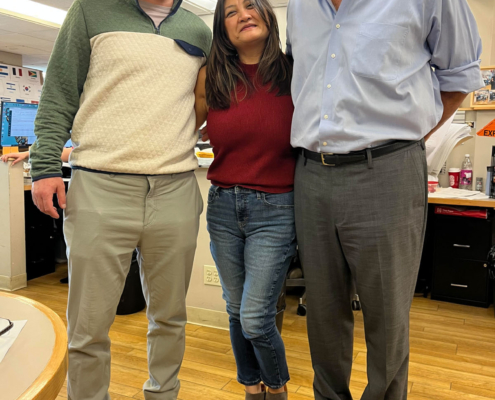


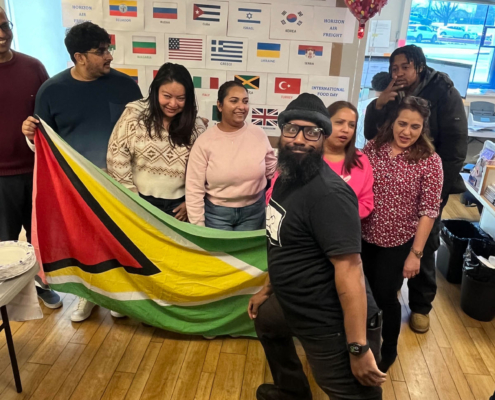
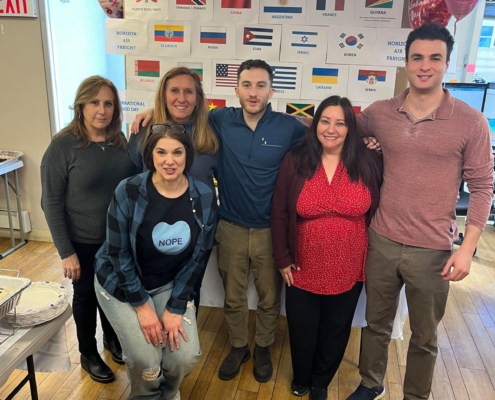
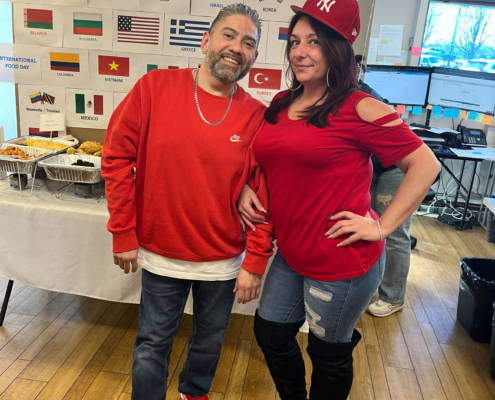
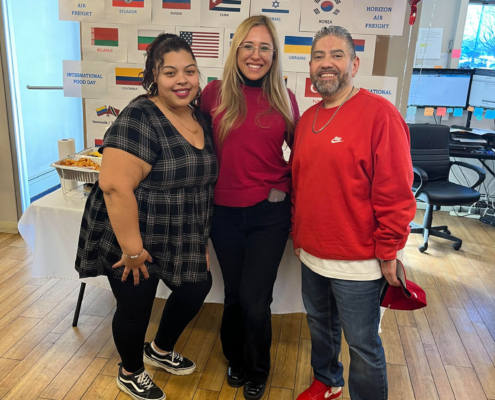
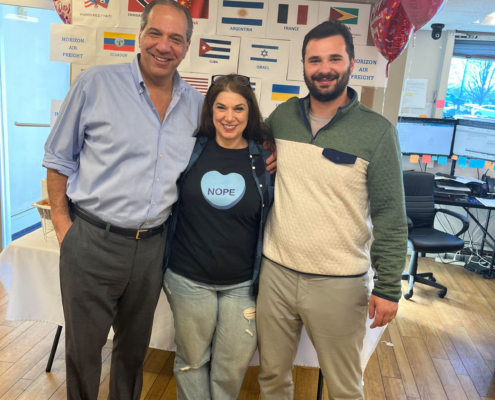
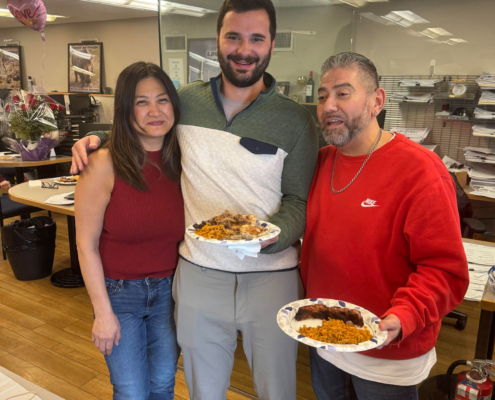





 Jim Gassert
Jim Gassert


